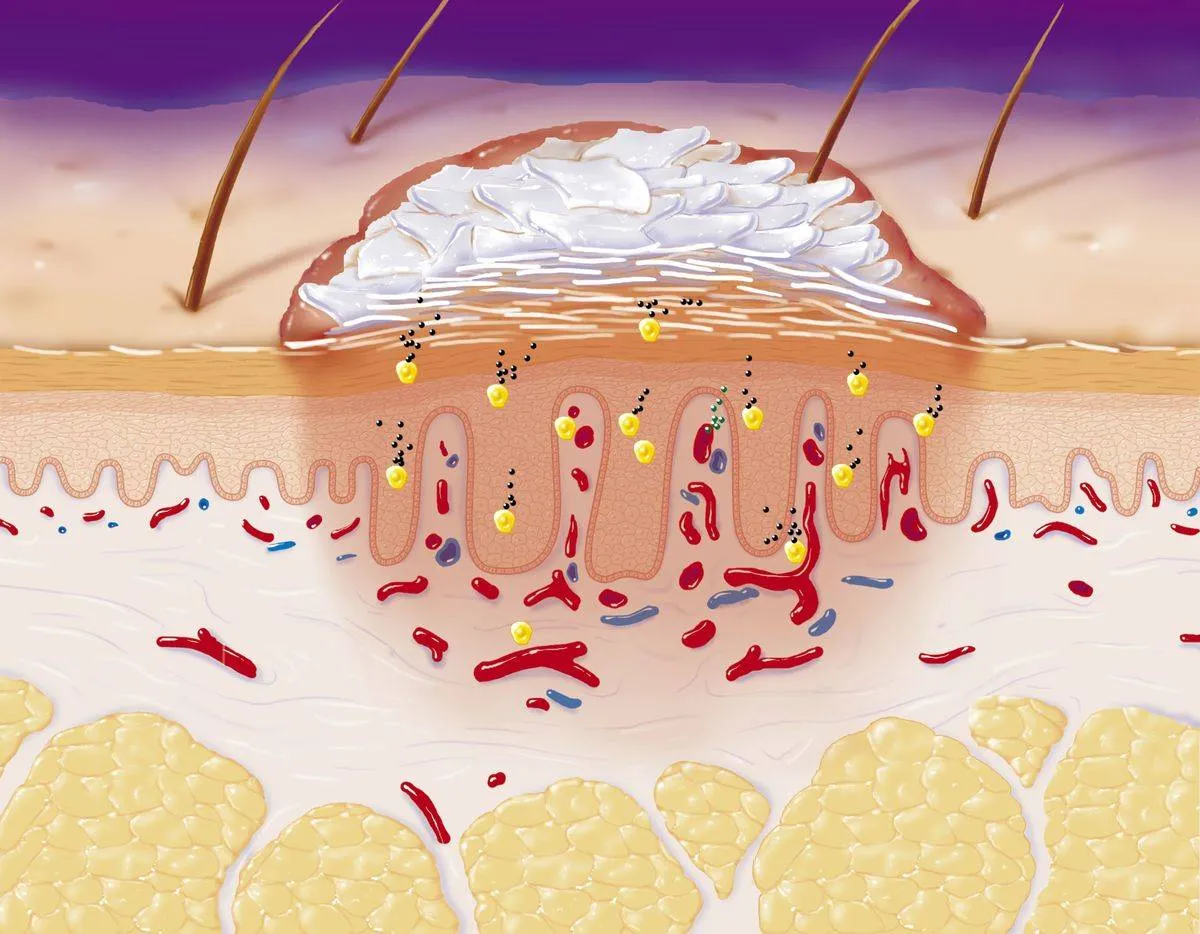Manage Scalp Psoriasis With These Simple Tips
If you suffer from psoriasis you're probably already acutely aware of the skin disease. Scalp psoriasis typically results in red, itchy scaly patches. The chronic disease has no cure with a pattern that follows cycles that flare up for weeks and even months at a time.
While the exact cause of the autoimmune disease is unknown, we do understand that suffered struggle to treat their symptoms. For those people, we've put together a list of five tips that could help you prepare for and manage scalp psoriasis outbreaks.

If you or a loved one are battling chronic symptoms and discomfort there are several treatments that can help fight the condition. While there is no cure, following these tips can help reduce discomfort.
Get More Sunlight In Your Daily Routine
When you expose your skin to ultraviolet light the growth of skin cells is accelerated and abnormal cell growth is slowed. Sunlight also provides for vitamin D, an essential nutrient.
Keep in mind, sunburn won't help your condition. If you're going to spend time outside during the most sunburn prone times of day, typically between 10am and 4pm, you should be sure to apply a generous amount of sunscreen. You can also avoid direct sun exposure for periods of more than 15 minutes to stop sunburn in its tracks.
Be sure to speak with your healthcare provider before you choose this route but many scalp psoriasis patients have said additional sunlight has helped.
Don't Scratch When Outbreaks Occur
As dry skin occurs and flaky patches are exposed, many psoriasis sufferers want to scratch and pick at the affected skin. Sadly, these practices can aggravate the symptoms of psoriasis.
Instead, you can use a humidifier to add additional moisture to your skin or use
1. Don't Scratch or Pick
Psoriasis outbreaks can itch badly. That’s why people scratch and pick at the dry skin, flaky patches, and lesions. Instead of picking at your skin, try keeping your skin moist with lotions or skin moisturizers. You can also increase your skin’s moisture with a room humidifier.
Smoking Is Bad And So Is Alcohol
Studies have suggested that smokers with psoriasis are more likely to be exposed to flare-ups than none smokers. Researchers believe that a chemical in cigarette smokes is the culprit, although with so many chemicals in a single cigarette, pinpointing the cause hasn't proven fruitful at this point.
Alcohol, conversely, has been known to cause serious side-effects when taken with psoriasis drugs. Further, research has shown that drinking just a few alcohol beverages per week can cause new outbreaks to accurate. It's believed that a weakened immune system caused by alcohol consumption causes outbreaks to occur.
Be On The Lookout For New Treatments
4. Consider New Treatment Options
The FDA continues to approve new drugs for the treatment of psoriasis. With 125 million sufferers worldwide and 8 million people with psoriasis in the United States, it's not surprising that so many new treatments continue to gain approval.
Among the top choices for the treatment of the condition are biologics which target T-cell counts while blocking TNF-alpha.
Among the most widely distributed psoriasis drugs are cosentyx, humira, enbrel, elrezi, taltz, siliq, and cyltezo.
According to the National Psoriasis Foundation, those drugs have been shown in many cases to significantly decrease outbreaks in patients.
Speak to your healthcare provider to get started with the treatment they think is most likely to help with your own personal history.
Natural Treatments Could Help Reduce Symptom Pain
The National Psoriasis Foundation has recommended several natural remedies that can assist in the reduction of psoriasis discomfort.
Aloe vera has been suggested for its ability to reduce skin redness and scaling. Apple cider vinegar has also been shown to stop itchiness.
If neither of those options works for you, try an Epsom or Dead Sea salt. Both options may help remove scales stop itching.
Scalp psoriasis is a condition with no cure but it's also possible to live with less discomfort. Whether you rely on prescription drugs or natural remedies, taking a scientific approach to the condition could deliver the results you desire.
References: National Psoriasis Foundation, National Psoriasis Foundation, WedMD









